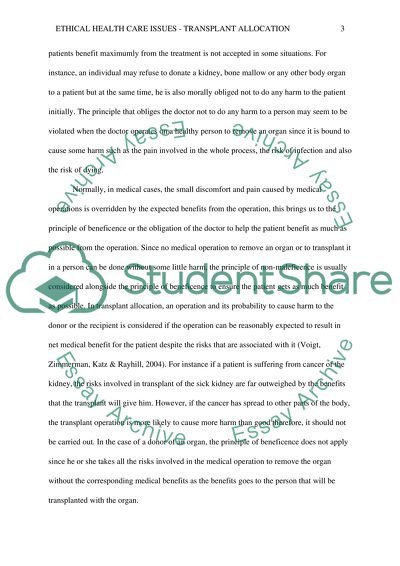Cite this document
(“Ethical Health Care Issues - Transplant Allocation Research Paper”, n.d.)
Retrieved from https://studentshare.org/health-sciences-medicine/1489927-ethical-health-care-issues-transplant-allocation
Retrieved from https://studentshare.org/health-sciences-medicine/1489927-ethical-health-care-issues-transplant-allocation
(Ethical Health Care Issues - Transplant Allocation Research Paper)
https://studentshare.org/health-sciences-medicine/1489927-ethical-health-care-issues-transplant-allocation.
https://studentshare.org/health-sciences-medicine/1489927-ethical-health-care-issues-transplant-allocation.
“Ethical Health Care Issues - Transplant Allocation Research Paper”, n.d. https://studentshare.org/health-sciences-medicine/1489927-ethical-health-care-issues-transplant-allocation.


